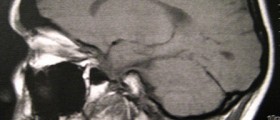
What is acoustic neuroma?
Acoustic neuroma is a type of brain tumor that develops inside the head, or more precisely, on the part of the eighth cranial nerve, which connects brain and the inner ear. Having in mind that it is a tumor, it might sound terrifying, but the fact is that this is a noncancerous type of tumor, it does not spread or affect the brain, and it usually grows very slowly, which is why there are cases in which it never provokes any symptoms or problems. It is also known under the name of vestibular schwannoma, because it is related to the vestibular part of the eighth cranial nerve and Schwann cells. However, monitoring is absolutely inevitable and necessary, and in cases it begins to cause some problems, it is possible to treat it, either with the surgery, or with radiation therapy. The reason why this rare type of tumor appears is still not known, but just like some other tumors, it may probably be related to some kind of a genetic disorder.
What are the most common symptoms of acoustic neuroma?
As for the symptoms of acoustic neuroma, it is important to say that they usually appear only when the tumor begins to grow, because until then, unless it presses on cranial nerves, people will usually not experience any signs or problems. What can be expected in such cases is that the person will experience the loss of hearing, which is the main characteristic of this condition, but it only happens on one side, and it happens gradually. Tinnitus, or ringing in the ear is also very likely to be experienced, as well as loss of balance, dizziness which may be accompanied by nausea and vomiting, and weakness.
Other symptoms that may be felt are even numbness of the face, or some other parts of the body, or it may even affect swallowing, speaking or even writing. The cases in which this condition may be life-threatening are very rare, but they are not impossible if the tumor grows so much that it begins to compress the brainstem. Even though, this is a very rare condition, it is highly recommended to visit the doctor if any of these symptoms are experienced either individually or in combination, because early diagnosis may contribute to the easier control of the growth of the tumor and it can also help in prevention of serious consequences of this condition, such as, permanent hearing loss, for example.

















Your thoughts on this
Loading...